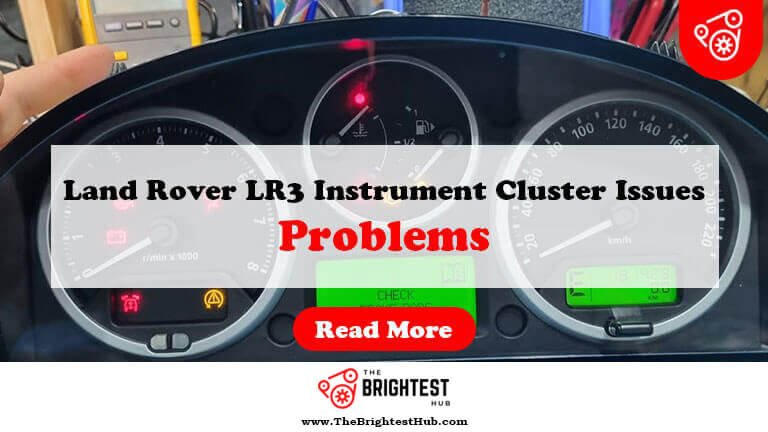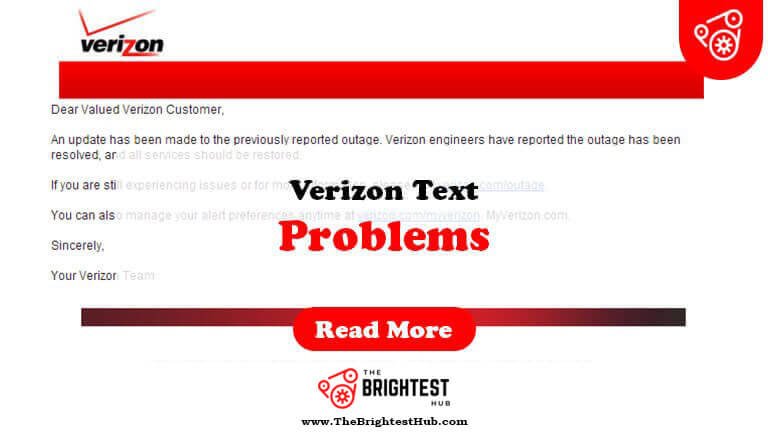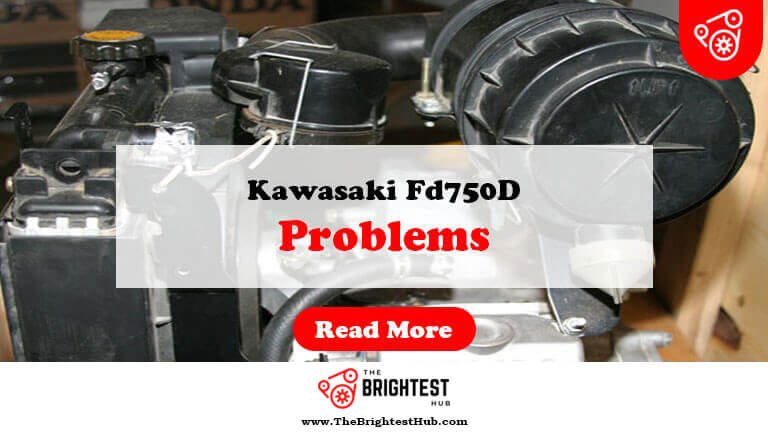Chevy 8 Cylinder to 4 Cylinder Problems: Engine Woes Uncovered
Chevy 8-cylinder engines can experience issues when switching to 4-cylinder operation. Common problems include rough idling, loss of power, and poor fuel efficiency.
Chevrolet vehicles equipped with V8 engines often feature a system that enables them to switch to 4-cylinder mode for improved fuel efficiency. While this technology can save gas, it may lead to various problems. Drivers might notice performance dips or engine vibrations during this transition.
Proper maintenance is crucial to avoid these issues. Regular checks on engine components and software updates can help ensure smoother operation. Understanding these potential problems can help owners make informed decisions about their vehicle’s performance and longevity. Keeping an eye on engine behavior will aid in identifying and resolving issues early.
Introduction To Chevy Cylinder Conversion

Chevy cylinder conversion is a popular topic among car enthusiasts. Many drivers consider changing their engine from a V8 to a 4-cylinder. This switch can offer various benefits. Understanding the reasons for this conversion is crucial.
The Allure Of V8 To I4
The V8 engine has long been a symbol of power. Many love its deep sound and strong performance. However, fuel efficiency is a growing concern. Switching to a 4-cylinder engine can save money on gas. Here are some reasons for this allure:
- Improved fuel economy
- Less emissions
- Lighter weight
- Lower maintenance costs
Why Drivers Make The Switch
Drivers make the switch for several reasons. Each reason can impact their driving experience. Here are some key points:
- Cost savings: A 4-cylinder engine uses less fuel.
- Environmental concerns: A smaller engine produces less pollution.
- Urban driving: Smaller engines suit city traffic well.
- Insurance rates: Lower engine size can reduce insurance costs.
Drivers should weigh these factors carefully. The choice between a V8 and a 4-cylinder depends on personal needs and preferences.
The Heart Of The Matter: Engine Conversion Basics
Converting a Chevy from an 8-cylinder to a 4-cylinder engine can improve fuel efficiency. This process involves careful planning and understanding of the vehicle’s mechanics. Knowing the basics of engine conversion helps avoid common pitfalls. Here, we break down the key components and tools needed for the conversion.
What Involves In Cylinder Reduction?
Cylinder reduction involves several critical steps:
- Assessing the vehicle’s compatibility with a 4-cylinder engine.
- Removing the existing 8-cylinder engine.
- Installing the new 4-cylinder engine.
- Updating the vehicle’s electrical and fuel systems.
Each step requires careful attention to detail. The vehicle’s performance may change significantly. Proper planning ensures the conversion goes smoothly.
Tools And Tech Needed
Gather the right tools for a successful conversion. Here’s a list of essential tools:
| Tool | Purpose |
|---|---|
| Socket Set | For removing engine bolts. |
| Wrenches | For various nuts and bolts. |
| Jack Stands | To safely lift the vehicle. |
| Engine Hoist | To lift and install the engine. |
| Multimeter | To check electrical systems. |
Ensure to have safety gear, like gloves and goggles. Familiarize yourself with the tools before starting.
Common Problems Post-conversion
Converting a Chevy from an 8-cylinder to a 4-cylinder engine can lead to several issues. Many drivers experience unexpected challenges. Understanding these problems helps in making informed decisions.
Power Loss And Efficiency
One major issue is the loss of power. A 4-cylinder engine typically produces less horsepower than an 8-cylinder engine.
- Drivers often feel a decrease in acceleration.
- Towing capacity may also be reduced.
Fuel efficiency can be affected as well. Many expect better mileage, but this isn’t always the case. Factors contributing to this include:
- Engine tuning issues
- Inadequate fuel delivery
- Improper weight distribution
Drivers might notice:
| Engine Type | Horsepower | Fuel Efficiency (MPG) |
|---|---|---|
| 8-Cylinder | 350 HP | 15-20 |
| 4-Cylinder | 200 HP | 20-25 |
Unexpected Wear And Tear
Another concern is unexpected wear and tear on the engine. A 4-cylinder engine may struggle under heavy loads. This can lead to premature failure.
- Common signs of wear include:
- Increased oil consumption
- Overheating
- Noisy operation
Proper maintenance becomes crucial after conversion. Regular checks on:
- Oil levels
- Coolant levels
- Belts and hoses
Ignoring these checks can result in costly repairs. Stay proactive to ensure engine longevity.
Fuel Economy: Expectations Vs. Reality
Switching from a Chevy 8-cylinder engine to a 4-cylinder engine can spark excitement. Many expect higher fuel economy. Understanding the reality behind these expectations is crucial. Let’s dive into the anticipated savings and real-world numbers.
Anticipated Savings
Drivers often anticipate significant savings after downsizing their engines. Here are some expected benefits:
- Lower fuel costs: Smaller engines use less fuel.
- Improved MPG: 4-cylinder engines typically offer better miles per gallon.
- Reduced emissions: Less fuel consumption leads to fewer emissions.
Many believe they will save hundreds annually. However, reality can differ.
Real-world Numbers
Actual fuel economy varies widely. Here’s a comparison of typical mileage:
| Engine Type | Average MPG | Estimated Annual Fuel Cost |
|---|---|---|
| Chevy 8-Cylinder | 15 MPG | $3,000 |
| Chevy 4-Cylinder | 25 MPG | $1,800 |
The table shows clear differences. Switching can save up to $1,200 per year. Yet, some drivers may not experience these savings.
Factors influencing fuel economy include:
- Driving habits
- Terrain type
- Vehicle maintenance
Real-world driving can lead to lower fuel efficiency than expected. Understanding these factors helps manage expectations.
Case Studies: Successes And Failures
The transition from a Chevy 8-cylinder to a 4-cylinder engine raises interesting stories. These stories highlight both triumphs and challenges. Understanding these case studies helps car enthusiasts and owners make informed decisions.
Triumphs Of Engineering
Many successful stories show how engineering advancements improved performance. Here are some key points:
- Fuel Efficiency: Some drivers report up to 30% better fuel economy.
- Power-to-Weight Ratio: Lighter engines often lead to quicker acceleration.
- Lower Emissions: Modern 4-cylinder engines produce fewer pollutants.
| Model | Year | Outcome |
|---|---|---|
| Chevy Malibu | 2016 | Improved fuel efficiency and performance |
| Chevy Equinox | 2018 | Enhanced handling and reduced weight |
Tales Of Caution
Not all stories end well. Some owners face issues after switching to a 4-cylinder engine. Here are some common problems:
- Power Loss: Some drivers complain about reduced horsepower.
- Engine Noise: Increased noise can be a concern in certain models.
- Reliability Issues: A few engines have reported unexpected failures.
It is essential to research before making a transition. Speak with mechanics and fellow owners. Understanding both successes and failures helps in making the right choice.
Expert Opinions: Is It Worth The Trouble?
Many Chevy owners wonder about the switch from an 8-cylinder to a 4-cylinder engine. This decision can affect performance, fuel efficiency, and overall driving experience. Experts share their insights on whether the transition is beneficial.
Mechanics Weigh In
Mechanics have varied opinions on this topic. Here are some key points they highlight:
- Fuel Efficiency: 4-cylinder engines often save more fuel.
- Power Loss: Transitioning may result in less horsepower.
- Maintenance Costs: 4-cylinder engines can have lower repair costs.
- Performance: Some drivers miss the torque of an 8-cylinder.
Many mechanics suggest considering your driving habits. For city driving, a 4-cylinder may be best. For towing or heavy loads, an 8-cylinder is often preferred.
Long-term Considerations
Thinking long-term is crucial before making the switch. Here are some factors to consider:
| Factor | 4-Cylinder | 8-Cylinder |
|---|---|---|
| Longevity | Generally longer lifespan | May require more frequent repairs |
| Resale Value | Often lower resale value | Higher resale value |
| Driving Experience | Smoother for daily commutes | More powerful for off-road |
Consider your lifestyle and driving needs. A 4-cylinder engine might suit daily commutes. An 8-cylinder engine may be better for adventure seekers.
Alternatives To Engine Downsize
Engine downsizing can cause issues for many Chevy owners. Instead, consider other options. These alternatives can maintain performance while improving fuel efficiency.
Hybrid Options
Hybrid vehicles combine gas engines with electric motors. This combination offers better fuel economy without sacrificing power. Here are some benefits:
- Improved miles per gallon (MPG)
- Lower emissions
- Quiet operation
- Instant torque delivery
Popular Chevy hybrids include:
| Model | Engine Type | MPG |
|---|---|---|
| Chemical Volt | 1.5L I4 + Electric | 53 city / 54 highway |
| Chevy Malibu Hybrid | 1.8L I4 + Electric | 49 city / 43 highway |
| Chevy Tahoe Hybrid | 6.0L V8 + Electric | 20 city / 23 highway |
Sticking With Stock
Keeping the original engine is a viable choice. Stock engines are designed for performance and reliability. Benefits of sticking with stock include:
- Proven reliability
- Easier maintenance
- Lower repair costs
Consider these tips to maintain your stock engine:
- Regular oil changes
- Scheduled tune-ups
- Use high-quality fuel
- Monitor engine performance
Navigating The Future Of Engine Conversions
Engine conversions are changing how we think about performance and efficiency. The shift from a Chevy 8 Cylinder to a 4 Cylinder engine offers many benefits. It can enhance fuel economy and reduce emissions. Understanding this transition is crucial for car enthusiasts and everyday drivers.
Technological Advancements
Recent innovations have made engine conversions easier and more effective. Technology helps in several ways:
- Engine Design: Modern 4 cylinder engines are more efficient.
- Fuel Injection: Direct fuel injection improves power and efficiency.
- Turbocharging: Turbochargers enhance power without increasing engine size.
These advancements lead to:
- Better performance from smaller engines.
- Lower maintenance costs.
- Increased resale value of converted vehicles.
Environmental Implications
Switching from an 8 cylinder to a 4 cylinder engine can have significant environmental benefits. Key factors include:
| Aspect | 8 Cylinder | 4 Cylinder |
|---|---|---|
| Fuel Efficiency | Lower | Higher |
| CO2 Emissions | Higher | Lower |
| Noise Pollution | Higher | Lower |
These changes lead to a cleaner environment. Lower emissions benefit everyone. Society gains from improved air quality.
Frequently Asked Questions
What Are Common Chevy 8 To 4 Cylinder Issues?
Common issues include engine misfire, rough idling, and decreased fuel efficiency.
How Does Switching Affect Engine Performance?
Switching can lead to loss of power and responsiveness, impacting overall driving experience.
Can I Fix These Problems Myself?
Basic issues may be fixable at home, but complex problems often require professional assistance.
What Are Signs Of Cylinder Deactivation Failure?
Signs include warning lights, poor acceleration, and unusual engine noises during operation.
Is It Expensive To Repair These Problems?
Repair costs vary widely, but major issues can become quite costly without regular maintenance.
Conclusion
Switching from a Chevy 8-cylinder to a 4-cylinder engine can present several challenges. Understanding these issues helps in making informed decisions. Regular maintenance and proper tuning can mitigate most problems. Always consult a professional mechanic for tailored advice. Staying informed ensures a smoother transition and better vehicle performance.






